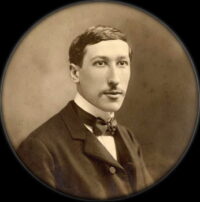Category: Civilization
-

Round Table: Ossendowski, Guenon, Maritain
In 1924, Rene Guenon, Ferdynand Ossendowski, and Jacques Maritain met for a round table discussion in Paris, hosted by Frederic Lefevre. These are the notes from that meeting, originally published in the 26 July 1924 issue of “Les nouvelles littéraires”.
-
Sola Scriptura in the Middle Ages
The doctrine of Sola Scriptura was once understood in a total sense: that is, as a call to assimilate one’s self to the Logos of God through meditation (often on the Psalms), & to preach this Gospel to every aspect of Life. The faith was not a matter of private devotion, merely. Ruskin’s comments are…
-
The Bible of Amiens
Romanides argues that the Franks decimated Roman urbanization & established feudalism in an effort to maintain a precarious grip on overextended power from their home bases: “In the time of Pippin of Herestal (697-715) and Charles Martel (715-741), many of the Franks who replaced Roman bishops were military leaders who, according to Saint Boniface, “shed…
-
Liturgy and the Logos
A popular refrain I hear from fellow Protestants is that “meaningless rituals”, gestures, “smells and bells”, or vain repetitions (a Scriptural phrase) won’t help find favor with God. While I am certain that ritual can (and does) degenerate into “those of darkness” who are fascinated with the dead (Rene Guenon) and their debased conclaves or…
-
The Orthodox Word (continued)
Speaking of the “Dark Ages”, the Orthodox Word tract (Forming the Soul, by Sisters of St. Xenia’s Skete): “He treasured hierarchy because it was for him a reminder of God. His whole world was an endlessly unfolding, interlocking allegory of the majesty and love of God. He rejoiced in the delight of obedience and walked…
-
The Path of Blue Flowers
You ask me what I mean by ideas when I say that they are the only permanent thing in man and that they alone deserve one’s lifetime attention. Ideas are first of all opposed to ephemeral external things and to the sensations, desires, and passions directly referring to them.
-
The Nachtenschein of Classic Liberalism
Having come across a remark in AKC‘s letters that the really cultured and spiritual European does not have a peer in their Eastern counterparts, I returned to a volume of Wilhelm Humboldt‘s collected letters and essays, excerpted by subject. Although one can tell that the writing was not in English (the German lumbers through the…
-

Excerpt from Forming the Soul
The following is an excerpt from a tract circulated within the Orthodox Word; it was written by the Sisters of St. Xenia’s Skete. A good friend of mine gave it to me a long while ago. There is food for thought here, as the writer(s) argue that old Western culture can be a sort of…
